History in the News
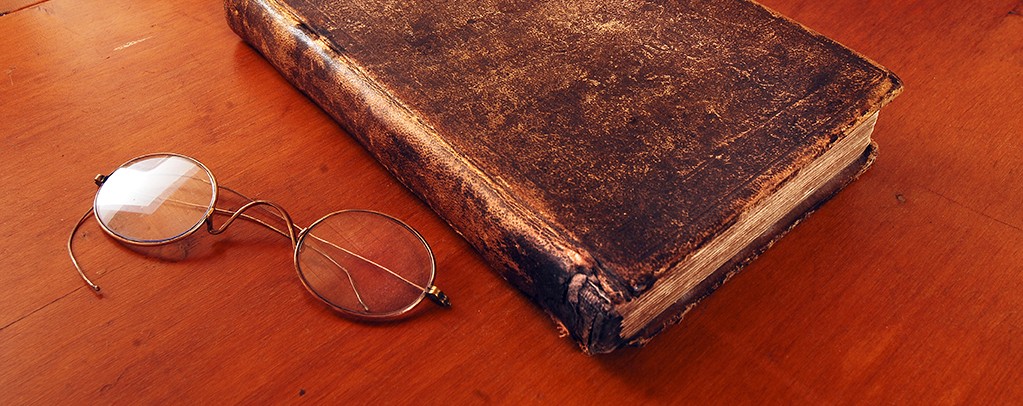
Photo by Ron Cooper
Discuss current events in historical context at a monthly roundtable with Mid-Valley historians, political scientists, and other intellectuals. The topic of each discussion will be pulled straight from the headlines, and will be decided just 10 days before each event. Listen to the thoughts of experts, then join in the conversation and voice your own opinions.
Monthly Topics
State of Homelessness: Past and Present
Date Postponed – See Details Below
The Willamette University Public History Practicum has postponed the History in the News event scheduled for Wednesday, March 11. Please check back for updates. For further questions, contact ldunlap@willamette.edu
Homelessness has become increasingly visible on the streets and in newspaper headlines, state and nation-wide. This panel considers the histories of people experiencing homelessness and the long-term history of public responses to homelessness in order to understand current conditions.
Has the experience of homelessness gotten worse, or simply more visible? How have media representations of homelessness changed over time and how do these affect public opinion and policy? What approaches to shelter and support people have been equitable and effective in the past and in other places?
Panelists will include:
- Sammy Basu (Professor of History and Public Health, Willamette University)
- Jimmy Jones (Executive Director Mid-Willamette Valley Community Action Agency)
- Elizabeth Schrader (Director of Resource Development SafeSleep United)
Moderated by Leslie Dunlap (Professor of History, Willamette University).
History in the News is free and open to the public. Food will be available for purchase from TAO: Taproot Annex One.
Oregon’s Own History of Sexual Harassment, Abuse, and Assault
Thursday, November 16th • 5:30 pm to 7:00 pm
Millions of people have recently disclosed their experiences of sexual harassment and assault on social media. Oregon is no exception. This roundtable puts current conversations about sexual harassment and assault in historical perspective. Are we at a pivotal moment in changing the cultural attitudes and workplace practices that sustain such abuse? What has changed, and not changed? Why have efforts to expose and prevent harassment and assault faltered or met resistance in the past? Please join us for conversation with experts in politics, policy, and the law.
History in the News is free and open to the public. Food and drink will be available for purchase from Taproot Lounge & Café.
This program is made possible in part by a grant from Oregon Humanities (OH), a statewide nonprofit organization and an independent affiliate of the National Endowment for the Humanities, which funds OH’s grant program. History in the News is sponsored by KMUZ Community Radio, and presented in partnership with Salem City Club.
History in the News: Whose Monuments? Whose Memory?
Thursday, Sept. 21st, 2017 • 5:30 pm to 7:00 pm
As national controversy rages over whether and how to remove statues memorializing the Confederacy, communities across the country are beginning to consider the meaning and significance of public memorials, buildings, streets, schools, and teams in their own places. Oregon State University, for example, is in the process of conducting community meetings to reevaluate buildings named after a pro-slavery newspaperman, a Confederate army soldier, and a coach who resisted desegregation of the basketball team. This History in the News panel discussion considers these debates over historical monuments and memory, and the broader questions they raise about the complex history of colonialism, racism and white supremacist imagery in American culture. When and what was the process to establish these memorials in the first place? Does removing statues or renaming buildings erase history? What do historians, preservationists and educators have to say about this? Is there disagreement in their fields? Does removing statues and renaming buildings and teams begin a “slippery slope,” as some critics have argued?
Panelists (more TBA):
- Reiko Hillyer, Lewis and Clark (author of Designing Dixie: Tourism, Memory and Urban Space in the New South)
- José-Antonio Orosco, Associate Professor of Philosophy, Director Peace Studies, Oregon State University (author of Cesar Chavez and the Common Sense of Nonviolence)
History in the News: Earthquakes, Eclipses, Tsunamis, and Volcanoes: Can History Prepare us for the Unexpected?
Social media experts forecast that the total solar eclipse of August 21 will be “the most photographed, most shared, most tweeted event in human history,” while highway authorities predict that the days surrounding the eclipse could see the greatest temporary mass migration of humans to see a natural event in U.S. history. Oregonians are steeling themselves for the arrival of perhaps a million visitors, and attendant stresses on highway, sanitation, and cell phone systems; the Governor has even called out the National Guard in advance to handle crowds, traffic, and fires.
Panelists:
- Christine Colasurdo: Artist, poet, and writer, author of Return to Spirit Lake: Life and Landscapes at Mt. St. Helens (2016) and contributor to In the Blast Zone: Catastrophe and Renewal on Mt. St. Helens (2008).
- Jay Pasachoff: Astronomer and Williams College Professor, and Chair of the International Astronomical Union’s Working Group on Eclipses and a veteran of 65 previous solar eclipses, who is also leading an observational team on the Willamette campus for the eclipse.
- Jason Younker: Anthropologist, Assistant Vice President and Advisor to the President on Sovereignty and Government to Government Relations at the University of Oregon, whose scholarship includes work on Coquille oral histories of tsunamis.
This History in the News panel considers the eclipse and other monumental natural phenomena such as volcanoes, earthquakes, and tsunamis, in social and historical perspective. How did people in our region anticipate and respond to such cataclysmic or cosmic events in the past? Did such events have long term effects on lives and landscapes here? How have they been incorporated into the cultural memories and historical narratives of diverse communities? Does history offer us lessons on how to predict, and prepare for such occurrences?
History in the News: Should Historians be Pundits?
Recent editorials in the New York Times, The Atlantic, and The Washington Post have raised questions about whether and how historians ought to opine on current events and political issues (see the links below, and please read!). In many ways, the WHC’s History in the News series has raised this question, too. For this program, we will directly engage the matter of whether historians and other scholars should be pundits. To what extent are/can scholars be objective? Are historians supposed to be apolitical? How should historians engage in political debate – if at all? What strategies do scholars have for managing and balancing their work as professionals and their interests in current events and political issues?
- https://www.nytimes.com/2017/06/26/opinion/trump-nixon-history.html
- https://www.theatlantic.com/politics/archive/2017/06/what-is-the-role-of-historians-under-the-trump-presidency/531729/
- https://www.washingtonpost.com/posteverything/wp/2016/12/20/this-isnt-1914-and-historical-analogies-can-often-lead-us-astray/?utm_term=.c7755c2cd024
Roundtable Panelists:
- Andra Chastain grew up in Salem and is a Ph.D. candidate in Latin American history at Yale University. She is currently completing a dissertation about the history of the subway in Santiago, Chile, which has been supported by the Social Science Research Council. Her research interests include urban political history, history of science and technology, and the transnational Cold War.
- Ellen Eisenberg is the Dwight & Margaret Lear Professor of American History at Willamette University. Her research centers on the history of American immigrant and ethnic communities, particularly American Jewish communities. Her published work includes a two-volume history of Jews in Oregon: Embracing a Western Identity: Jewish Oregonians 1849-1950 (2015) and The Jewish Oregon Story, 1950-2010 (2016).
- Kimberly Jensen received her Ph.D. in history from the University of Iowa and is Professor of History and Gender Studies at Western Oregon University. She is the author of Mobilizing Minerva: American Women in the First World War (University of Illinois, 2008) and Oregon’s Doctor to the World: Esther Pohl Lovejoy and a Life in Activism (University of Washington, 2012). She is at work on a new book project examining Oregon women’s citizenship and civil liberties from after the achievement of the vote through the 1920s tentatively titled “Civic Borderlands: Oregon Women, Citizenship, Civil Liberties and the Surveillance State, 1913-1925.”
- David Lewis is a Tribal anthropologist, a member of the Grand Ronde Tribe, and holds a PhD from the University of Oregon. Over the past decade he has worked to understand in greater detail what happened to the tribes of Oregon during the settlement period, and what happened to them after removal to Tribal Reservations. David teaches at regional colleges and lives in Salem with his wife Donna, and his sons Saghaley and Inatye.
- Barbara Mahoney served as an adjunct faculty member and in the administration of Willamette University as director of Alumni Relations and as vice president for University Relations. She has served on the boards of several organizations including Oregon Humanities, the Oregon Encyclopedia, Portland Center Stage and the Library Foundation and as chairman of the Oregon Arts Commission.Her first book, Dispatches and Dictators, won the Oregon Book Award for Literary Nonfiction in 2003, and her most recent book, The Salem Clique: Oregon’s Founding Brothers, has just been published by the Oregon State University Press.
- Fred Thompson directs the Willamette University Center for Governance and Public Policy Research and is Goudy Professor of Public Management and Policy emeritus at the Atkinson Graduate School of Management. He is an elected member of the National Academy of Public Administration and a recipient of the NASPAA/ASPA Distinguished Research Award and the Association for Budgeting and Financial Management’s Aaron B. Wildavsky Award for scholarly contributions to the field. He is currently a member of the Oregon Legislative Revenue Office’s Technical Advisory Panel and sits on the editorial boards of Public Budgeting & Finance, Public Money and Management, Municipal Finance Journal, and Public Finance Review. His current research focuses on revenue volatility and tax administration.
History in the News: Real Histories of “Fake” News in Oregon
Thursday, June 15th • 5:30 pm to 7:00 pm
at the Willamette Heritage Center
Accusations and allegations about “fake” news and the manipulations of “mainstream media” aren’t unique to America in the twenty first century. Power, politics, and the press have mixed together throughout Oregon’s past, from vicious editorial exchanges between Asahel Bush’s Oregon Statesman and Thomas Dryer’s Oregonian during early statehood to the muckraking journalists of the early twentieth century and beyond. Join us for an enlightening conversation about the history of journalism’s role in educating, empowering, and enraging Oregonians.
The roundtable:
- Barbara Mahoney, author of The Salem Clique: Oregon’s Founding Brothers (http://osupress.oregonstate.edu/book/salem-clique)
- Dick Hughes, founder and principle of Hughesisms LLC and long-time reporter, columnist, and editor at the Statesman Journal
- Seth Cotlar, professor of history at Willamette University
History in the News is FREE and open to the public! Food and drink will be available for purchase from Taproot Lounge & Cafe. Join us for History in the News on the third Thursday of each month through November, presented in part by a grant from Oregon Humanities, sponsored by KMUZ 88.5, and with the support of our communications partner, Salem City Club.
History in the News: Citizenship and Civil Liberties on the World War I Home Front
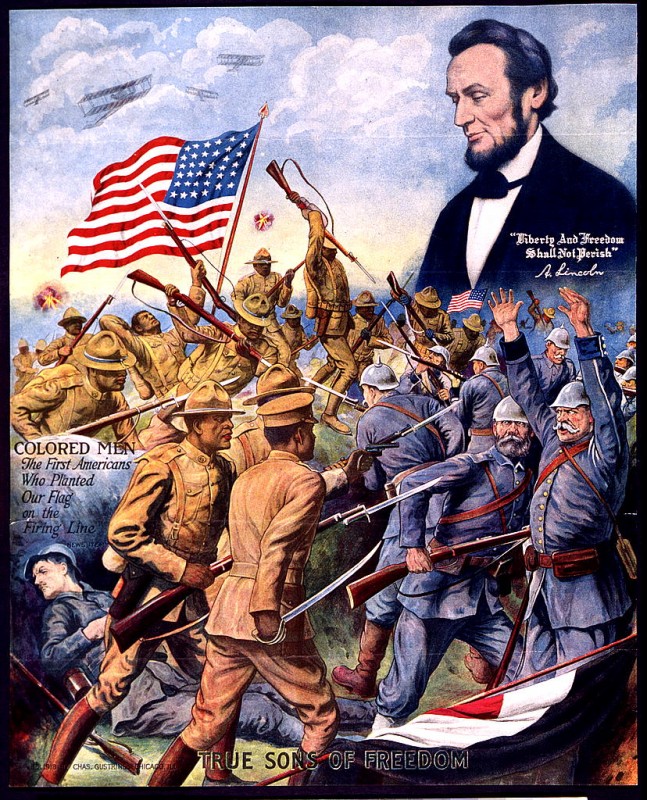
Thursday, May 18th • 5:30 pm to 7:00 pm
at the Willamette Heritage Center
May’s History in the News program is presented in partnership with the Oregon Historical Society, and features a presentation by and discussion with Dr. Adriane Lentz-Smith, Dr. Kimberly Jensen, and Dr. Steve Sabol.
Americans fought their wars for democracy at home as well as abroad. Wartime propaganda and policies defined new rules for the status and practice of citizenship in Oregon and across the nation. Women activists, for example, claimed a more complete female citizenship. For women of color and women in ethnic communities, this push intersected with claims and contestations rooted in their racial and ethnic identities and pushed back against a system of white racism that seemed destined and determined to expand. Native Americans, African Americans, immigrants, and hosts of others all engaged in war-related debates and activism that furthered their ongoing claims to civic rights and obligations. Some saw the promise of citizenship through wartime loyalty in support of government programs and the war effort. Others claimed a citizen’s right to dissent, often paying a high price to do so. This panel will provide audiences an overview of these histories and create opportunity for discussion about their ongoing legacies today.
Kimberly Jensen is Professor of History and Gender Studies at Western Oregon University. She is the author of Mobilizing Minerva: American Women in the First World War (2008) and is completing a book project “Civic Borderlands: Oregon Women, Citizenship, Civil Liberties and the Surveillance State, 1913-1925.”
Adriane Lentz-Smith is Associate Professor of History, Women’s Studies, and African & African-American Studies at Duke University. A historian of the black freedom struggle and the United States in the World, she is the author of Freedom Struggles: African Americans and World War I. She is currently working on a new book project on African Americans and state violence in the post-civil-rights years.
Steven Sabol is Associate Professor of History at the University of North Carolina at Charlotte. His forthcoming book, “The Touch of Civilization”: Comparing American and Russian Internal Colonization, is scheduled to be published by the University Press of Colorado in February 2017. In addition, he is co-editing North Carolina During the First World War, forthcoming in late 2017 with the University of Tennessee Press. He is the former editor of two different scholarly journals, Nationalities Papers and First World War Studies.
History in the News is FREE and open to the public! Food and drink will be available for purchase from Taproot Lounge & Cafe. Join us for History in the News on the third Thursday of each month through November, presented in part by a grant from Oregon Humanities, sponsored by KMUZ Community Radio, and with the support of our communications partner, Salem City Club.
History in the News: Crowds and Controversies in Oregon’s Parks and Wilderness
Thursday, April 20th | 5:30 pm to 7:00 pm
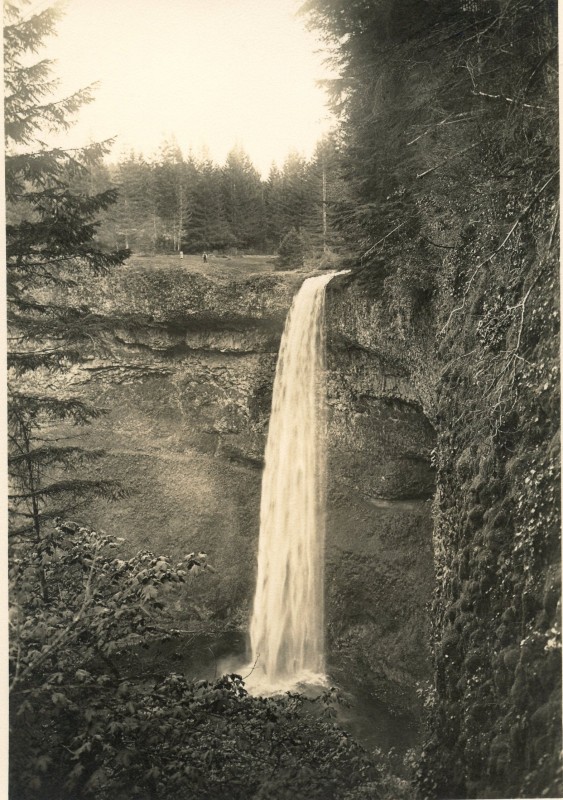
South Falls at Silver Falls State Park in Silverton, Oregon. Photo by J.D. Drake circa 1931. WHC 2013.007.0008.
Oregon’s parks, campgrounds, and wilderness areas are less tranquil than we might imagine. Heavy use of such areas has produced questions and controversies about new regulations at Opal Creek, overcrowding at Crater Lake, and increased fees at state parks. Public lands attract controversies in other ways, from the “rogue” National Parks twitter account resisting efforts to reduce National Parks Service funding to the 2016 militant takeover of the Malheur National Wildlife Refuge. This History in the News program will explore the political, cultural, and social history of controversies and debates in and about Oregon’s spectacular natural public spaces.
Roundtable Panelists:
- Stephen Mark is a National Park Service historian who works at Crater Lake National Park, where he has been stationed since 1988. Graduate of Southern Oregon State College and the University of Oregon, he’s also author of Preserving the Living Past: John C. Merriam’s Legacy in the State and National Parks
- Sarah Kelly is currently pursuing an M.A. in Environmental Arts and Humanities from Oregon State University. Immediately preceding her move to Oregon, Sarah spent two months traveling the country with her husband, exploring 50 national parks, forests, and monuments during the centennial anniversary of the National Park Service. Sarah has a B.A. in Communication and a minor in world cultures in literatures, and has held a variety of positions in academia from Administrative Assistant and Outdoor Trip Leader to Communications Specialist and Sustainability Manager.
- Joe Bowersox is the Dempsey Endowed Professor of Environmental & Earth Sciences at Willamette University. His research interests range from Forest Policy/Fire Policy and Water Policy to Environmental Politics and Environmental Ethics. PhD and MA from University of Wisconsin-Madison and BA from OSU, his publications include “From Turf to Table: Grass Seed to Edible Grains in the Willamette Valley” and “Sustainability and Environmental Justice: A Necessary Connection”
History in the News is FREE and open to the public. Food and drink will be available for purchase from Taproot Lounge & Café. This series is presented in part by a grant from Oregon Humanities, with the sponsorship of KMUZ Community Radio, and with our communications partner Salem City Club.
History in the News: Immigration in Oregon’s Past and Present
Thursday, March 16th | 5:30 pm to 7:00 pm
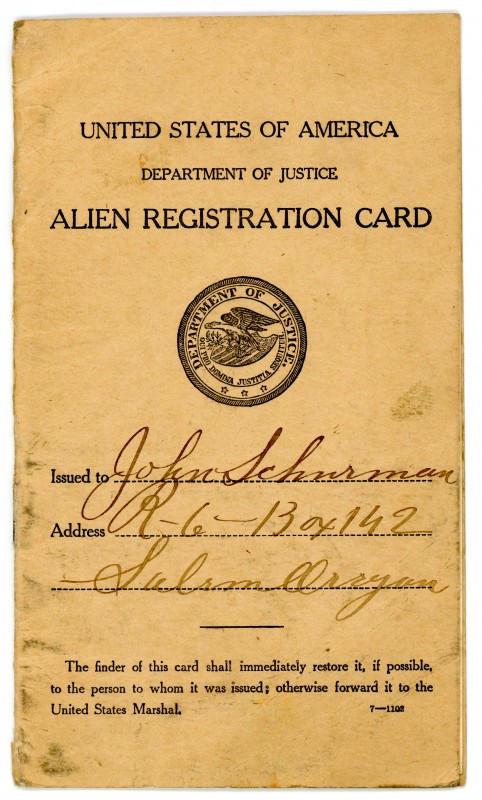
WHC 2016.101.0003.002.
Recent anti-immigrant rhetoric and actions – and the resistance to such words and deeds — highlights the need for clearer understanding of the history of immigration, immigration law, and immigrant rights. The first program of the 2017 History in the News series will explore this history in Oregon, from laws designed to limit Chinese and Japanese immigration in the 19th and early 20th century to Salem’s recent decision to become an “inclusive city.”
Roundtable Panelists:
- Ellen Eisenberg is the Dwight & Margaret Lear Professor of American History at Willamette University. Her research centers on the history of American immigrant and ethnic communities, particularly American Jewish communities. Her published work includes a two-volume history of Jews in Oregon: Embracing a Western Identity: Jewish Oregonians 1849-1950 (2015) and The Jewish Oregon Story, 1950-2010 (2016).
- Michael Niño is an assistant professor of sociology at Willamette University. His teaching interests include Latina/o Sociology, Medical Sociology, and Quantitative Methods and Statistics. In terms of his research, Professor Niño uses a variety of national data sources to develop, test, and promote the scientific understanding of population health among marginalized groups. His research has been published in a number of academic journals such as International Migration Review, Addictive Behaviors, and the Journal of Youth Violence and Juvenile Justice.
- John Ritter is a well-known historian of Salem and the Mid-Willamette Valley who has taught history at a variety of institutions in the region, including Linfield College and Corban University. Prof. Ritter has brought history to a wider audience in many different ways, from public talks on topics such as the state penitentiary to tours of Salem’s forgotten underground tunnels.
- Julie Weise is an associate professor of history at University of Oregon. Her research and teaching explore themes of identity, citizenship, migration, race, and nations in hemispheric and global context. Her published work includes Corazon de Dixie: Mexicanos in the U.S. South since 1910 (University of North Carolina Press, 2015). In addition to academia, Prof. Weise worked in the administration of Mexico’s President Vicente Fox as a speechwriter and researcher for the cabinet-level Office of the President for Mexicans Living Abroad in 2001-2002, and she has worked as a translator, paralegal, project manager, and policy researcher at immigration-related agencies in New Haven and Los Angeles.
This program is FREE and open to the public. Food and drink will be available for purchase courtesy of Taproot Lounge & Café. History in the News is presented in part by a grant from Oregon Humanities, with the sponsorship of KMUZ Community Radio, and with our communications partner Salem City Club.
History in the News: Election Reflections
Thursday, November 17th, 2016 | 5:30 to 8:00 pm
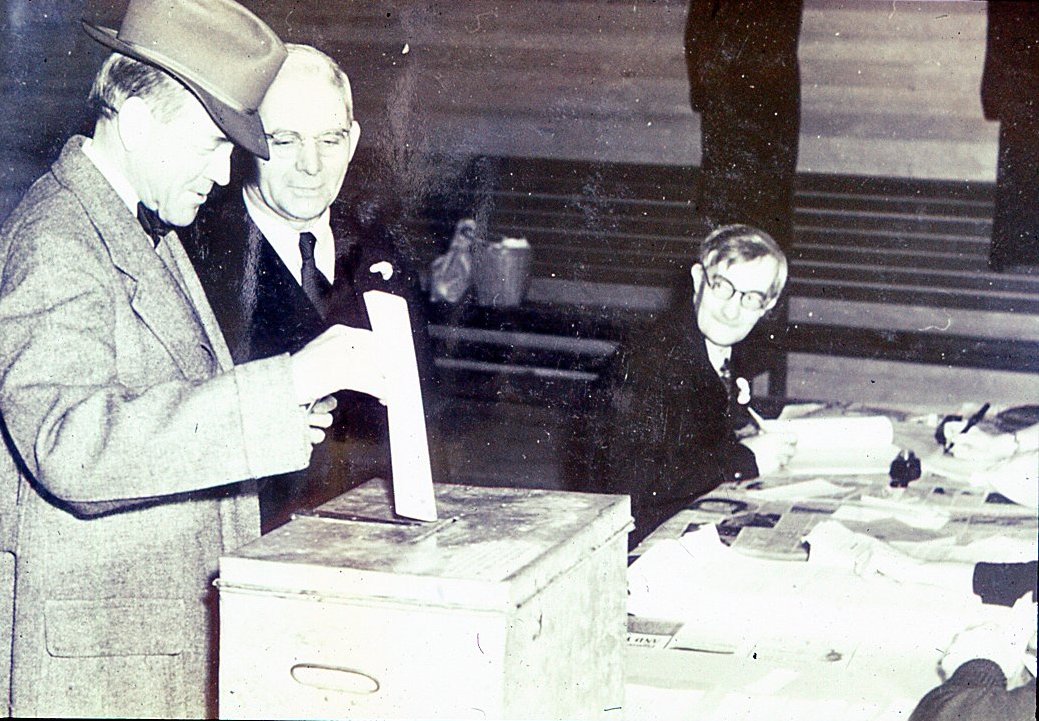
Charles Linza McNary casting his ballot, c. 1940. Al Jones Collection. WHC X2012.016.1752.
Many people consider the election of 2016 the most acrimonious and toxic in memory, and perhaps in U.S. history. News stories are chock full of “never befores”: never before have two candidates’ approval ratings been so low, never before have Oregonians decided on so consequential a tax initiative, never before have political debates between candidates and voters alike been so uncivil, and so on. After the election, many now wonder what the political and social consequences of such deep divisions will be. This History in the News program considers historical precedents for this election and its aftermath, as well as unprecedented developments.
History in the News is made possible by a grant from Oregon Humanities, is sponsored by KMUZ community radio, and is presented in partnership with Salem City Club and the Statesman Journal. Visit willametteheritage.org/history-in-the-news/ for more information.
Roundtable Panelists:
Seth Cotlar is Professor of History at Willamette University, where he specializes in the history of the United States in the years between the American Revolution and the Civil War; among his many courses are the History of American Conservatism and the History of American Radicalism. His first book – Tom Paine’s America: The Rise and Fall of Trans-Atlantic Radicalism in the Early Republic – won the Best First Book Prize from the Society for Historians of the Early American Republic. He is currently working on a new book project, a cultural history of nostalgia in modernizing America, 1776-1865.
Ellen Eisenberg is the Dwight & Margaret Lear Professor of American History at Willamette University. Her research centers on the history of American immigrant and ethnic communities, particularly American Jewish communities. Her published work includes Jewish Agricultural Colonies in New Jersey, 1882-1920 (1995) The First to Cry Down Injustice? Western Jews and Japanese Removal during WWII (2008), a National Jewish Book Award finalist, Jews of the Pacific Coast: Reinventing Community on America’s Edge (2010), co-authored with Ava Kahn and Bill Toll, and a two-volume history of Jews in Oregon: Embracing a Western Identity: Jewish Oregonians 1849-1950 (2015) and The Jewish Oregon Story, 1950-2010 (2016).
Richard J. Ellis is the Mark O. Hatfield of Politics at Willamette University. Among his many books are The Development of the American Presidency (2015, 2nd ed), Judging the Boy Scouts of America: Gay Rights, Freedom of Association, and the Dale Case (2014), Presidential Travel: The Journey from George Washington to George W. Bush (2008), and To the Flag: the Unlikely History of the Pledge of Allegiance (2005). In 2008 he was named the Carnegie Foundation for the Advancement of teaching Oregon Professor of the Year.
Details
History in the News is FREE and open to the public.


